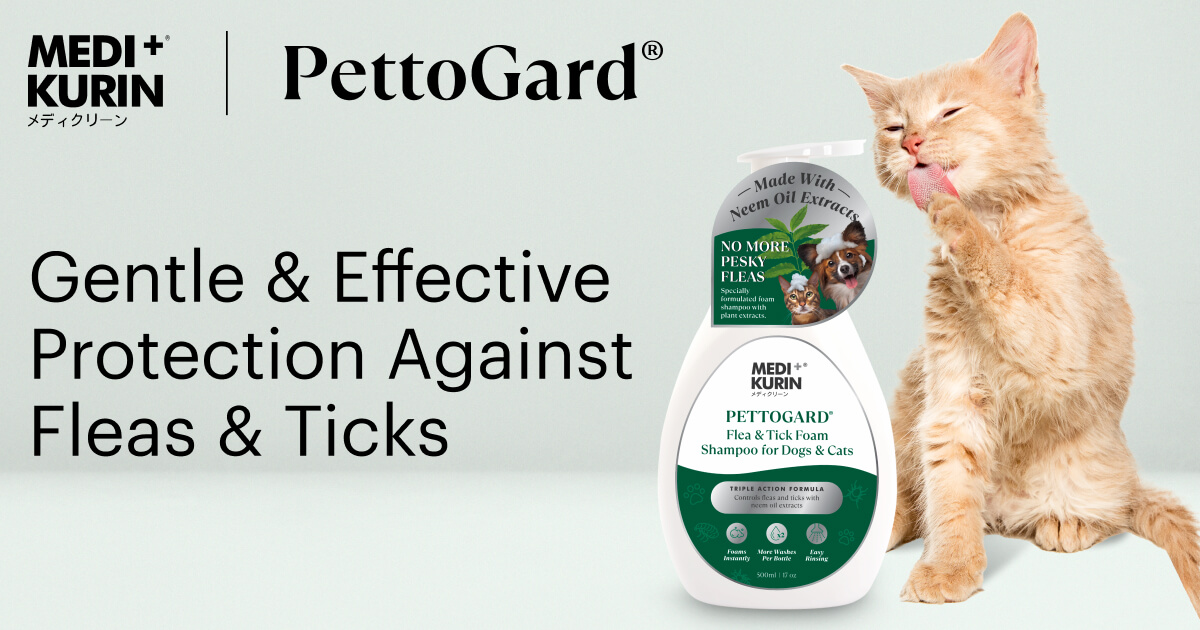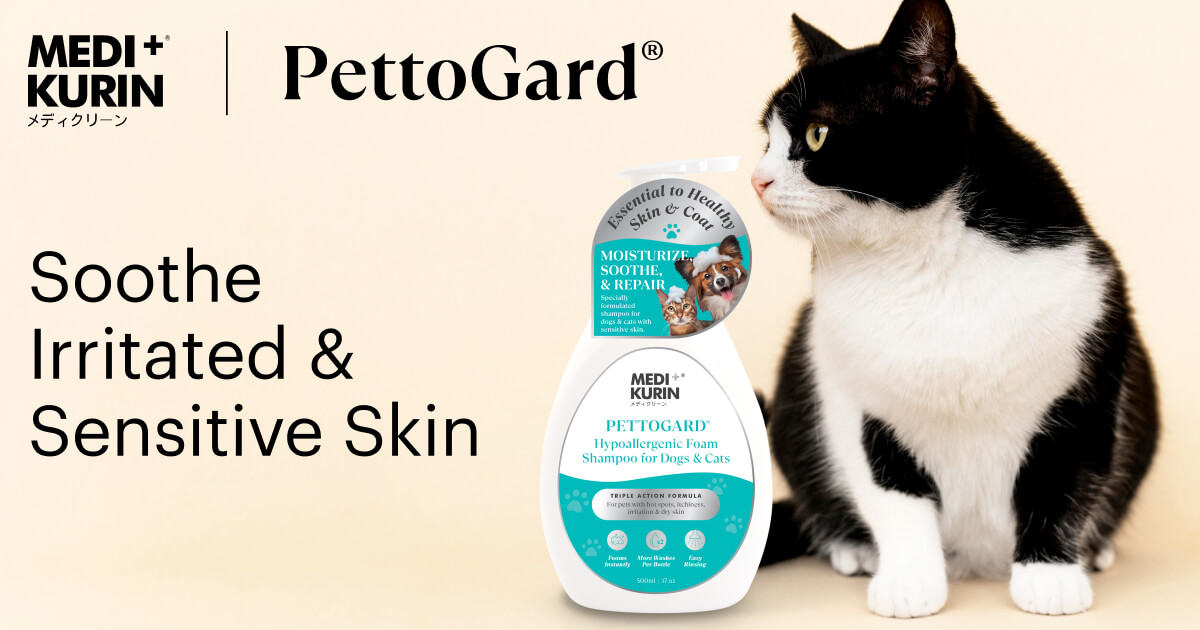Although cats are great at cleaning themselves, there are circumstances when a bath is necessary. Here’s what you need to know about bathing your cats.
Cats are well known for their ability to take good care of their own hygiene by self-grooming every day. According to veterinarians, cats spend anywhere between 30 to 50 percent of their waking hours grooming themselves.
As a cat mom or dad, you may catch yourself wondering;
- “Cats groom every day, but is it clean enough?”
- “If my cat needs to be bathed, how often should I bathe them?”
- “Do I need to give them a bath after they urinate or defecate?”
Do cats even need baths?
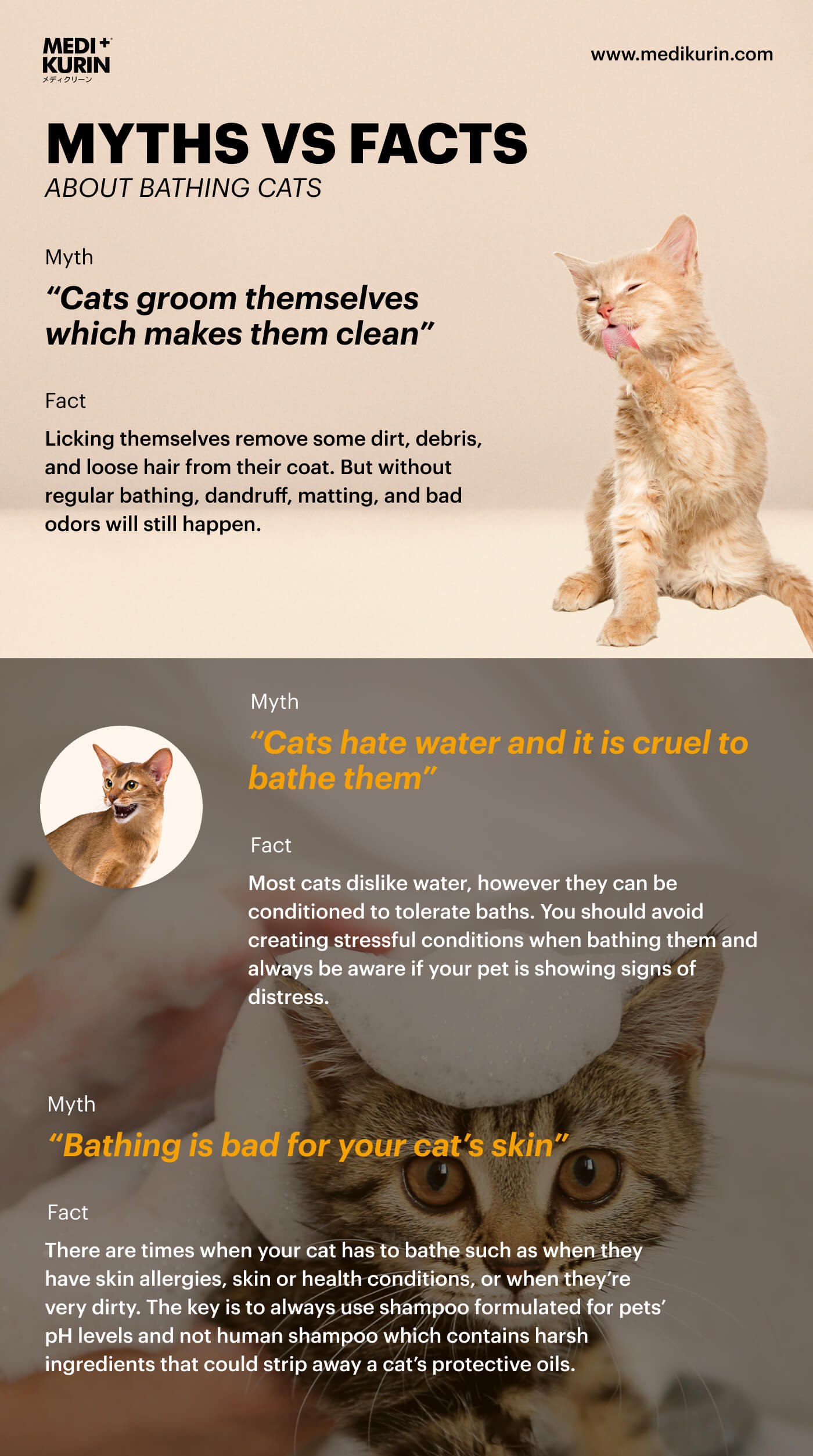
Cats may not like water, but a thorough bath can do wonders for your pet.
Typically, cats have a good sense of hygiene and require much lesser bath times compared to other furry pets, such as dogs. This has led to debates among cat owners with various schools of thought – but the myth that cats do not require baths has been debunked to be false!
Bathing your pet cat is an essential part of their health and grooming regimen. In fact, experts suggest that indoor cats may be bathed at least once every 4 to 6 weeks, more so if your cat likes to go outdoors.
Here are a few factors to help you determine how often you should bathe your cat:
- Is your cat more of an outdoor cat or an indoor cat?
- What is their breed and coat length (long fur, short fur, no fur, etc.)
- Is your cat large and heavy?
- Does your cat suffer from skin allergies/conditions?
P.S. Please do not bathe your cats when they are stressed and anxious.
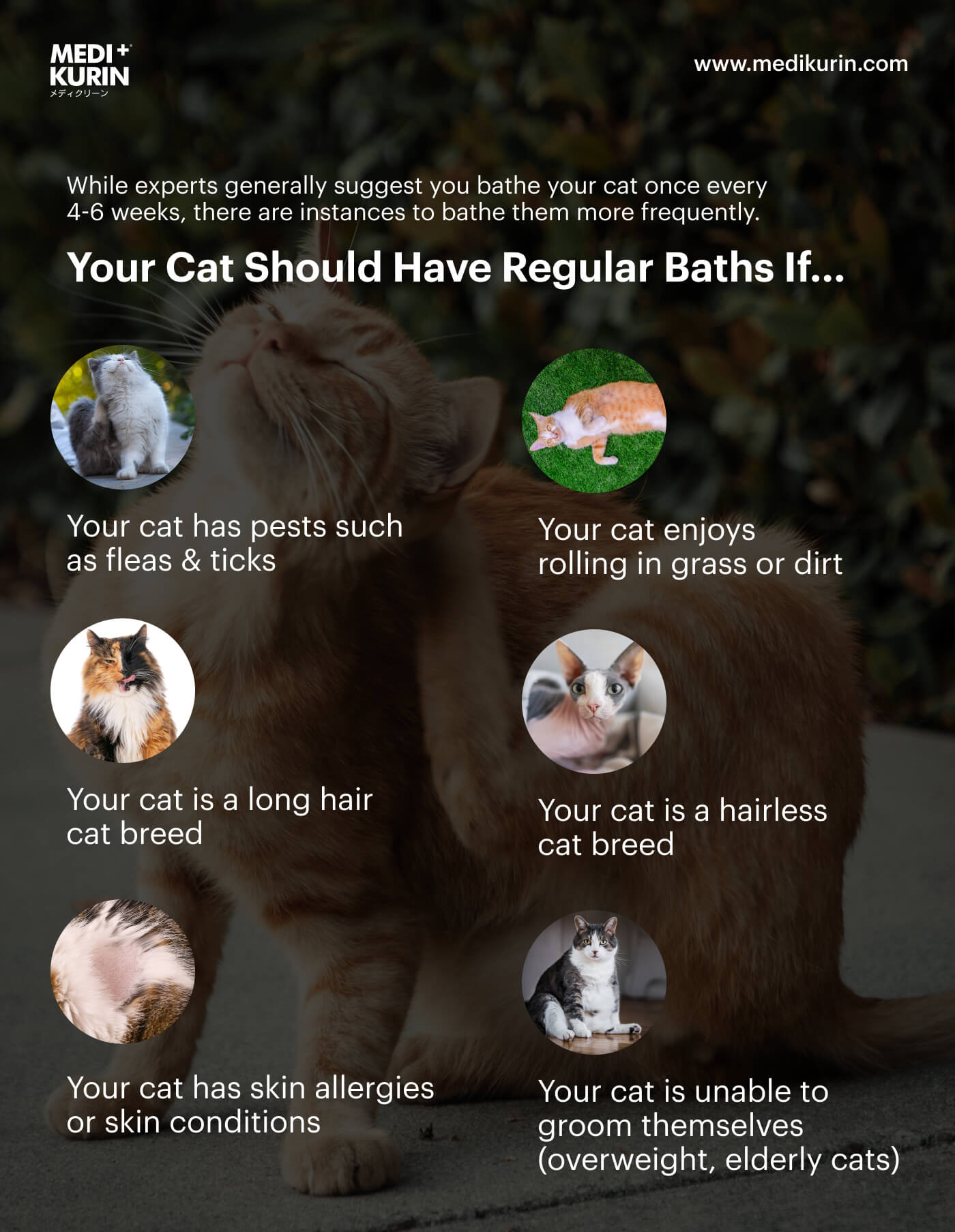
4 Benefits of bathing your cat
Cats have bristles on their tongues that act like a brush when they lick themselves as part of the self-grooming process. This naturally removes most debris from their coat, but licking alone would be impossible if you want to thoroughly clean the fur and remove bad odors.
1. Environmental contaminants can stick to your cats’ coats and may dirty your home.
Mud, soil, and various kinds of dirt easily stick to your cat’s fur. Accumulation of such dirt on your cats’ fur will cause their fur to be matted together – especially in tropical weather that is warm and humid throughout the year. Thankfully, this can be tackled easily with warm water and shampoo formulated for cats.
In worse-case scenarios of environmental contaminants, cat owners should beware that toxic substances such as volatile chemical compounds that stick to your cats’ coats can poison your pets when they self-groom. Other hazards would include fungal spores or other touch-transmitted microorganisms from the environment that could be transmitted to other pets or humans.
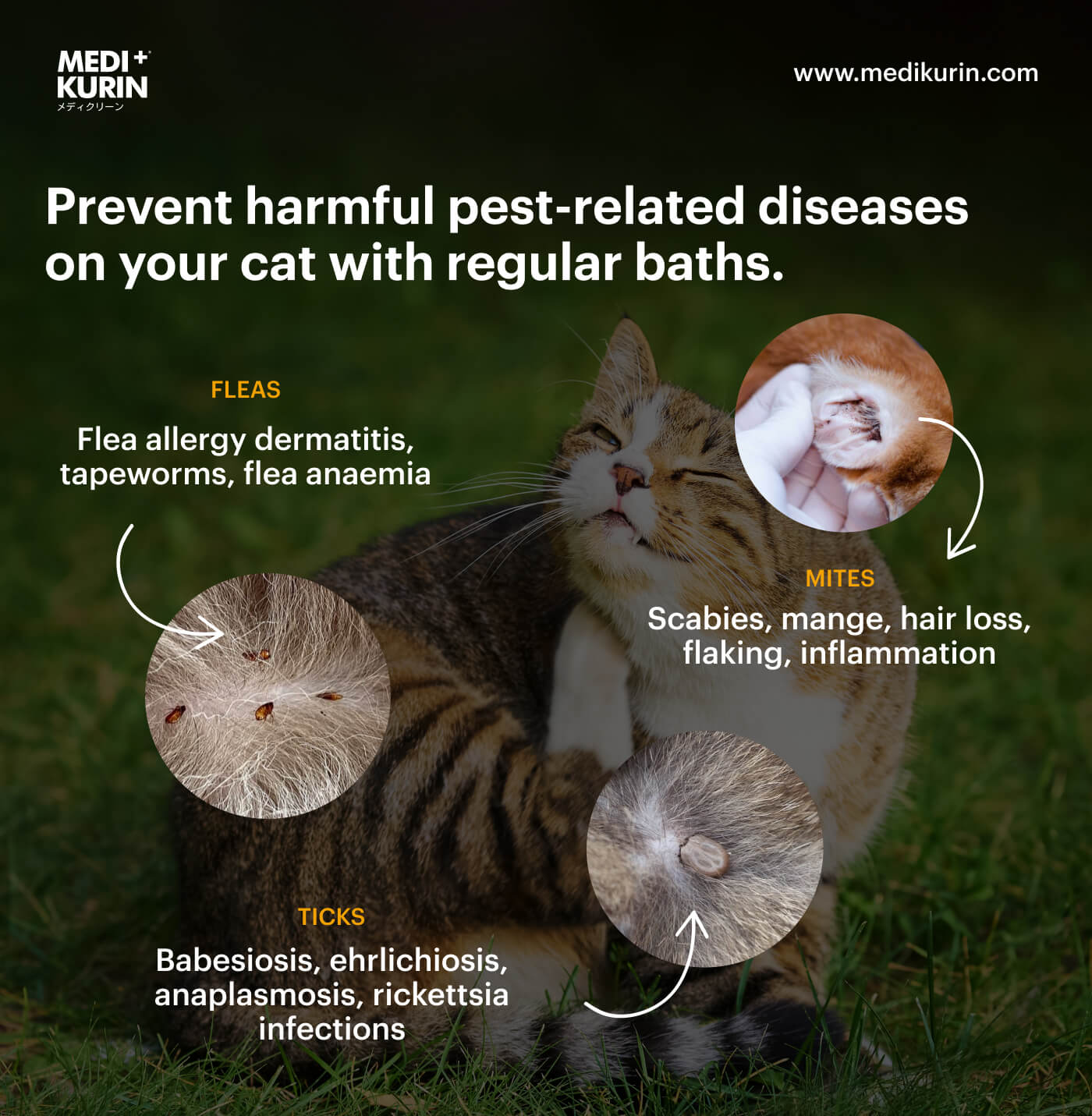
2. Get rid of harmful insects and parasites.
Insects or bugs can leave smelly residue on your cats that cannot be removed without a specially-formulated pet shampoo. Some of the most prevalent pests such as fleas, mites, ticks, and lice, feed on blood and may irritate, infect, or sicken your cat.
Regularly bathing your cat can eliminate fleas, mites, ticks, lice, and ringworms – but this must also be accompanied by regularly disinfecting the environment in which your cats live. Bear in mind that indoor cats are not spared as dust mites thrive inside homes, especially in countries with warmer climates.
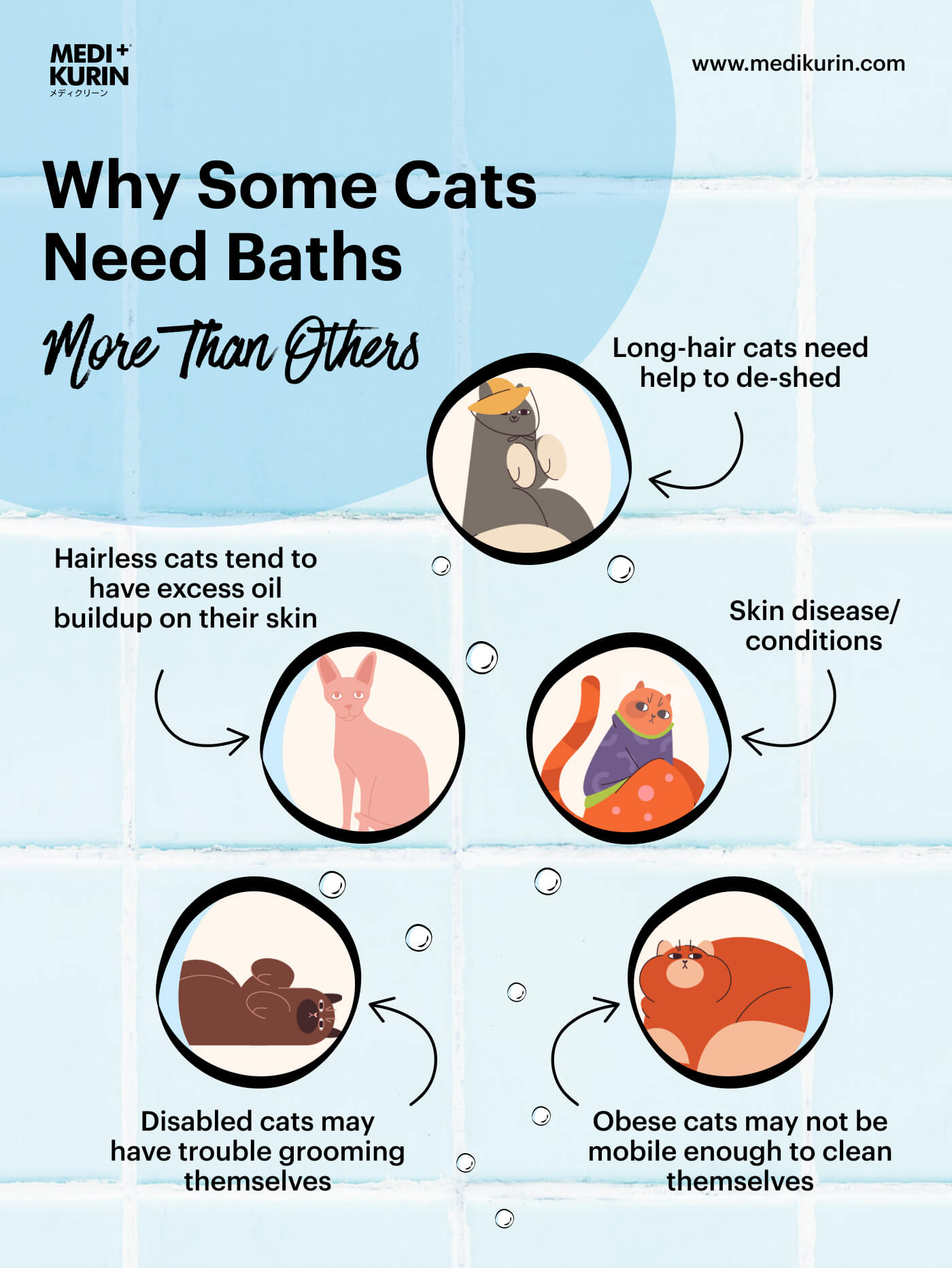
3. Each cat breed has its unique problems that regular bathing can help relieve.
Depending on your pet cat’s breed, genetics, and health condition, they may need your help to stay clean. For example, cats with long coats like the Mainecoon or Ragdoll may be more prone to matted fur as they usually have difficulties shedding their undercoat completely – which causes itchiness and flaky skin that could result in skin infections.
For cats like the Sphinx, regular bathing helps them remove excess body oil which is usually the breeding ground for malodour-causing bacteria. For cats with medium to short coats, regular bathing can reduce fur shedding, which is beneficial to pet owners who are allergic to cat furs.
Cats with health conditions like obesity may need help to clean areas where they could not reach, while cats with skin diseases will find much relief if pet owners can manage their condition with the correct shampoo formula recommended by their vets.
4. Regular bathing improves your pet cat’s immunity.
One of the most crucial defenses against diseases and infections that we share with cats and other animals is the skin – for obvious reasons. When your cat’s skin is healthy, it becomes a strong barrier against external environments. On the flip side of the coin, weakened or sick skin opens the floodgates of infections that allow microorganisms from the outside to enter the body.
Prevention is better than cure – and the easiest way to maintain your cat’s healthy skin is regular bathing with the right shampoo formula.
How does a bath treat skin problems in cats?
Giving your cat a bath can be as easy as a walk in the park if you have identified the right shampoo formula. However, if you are bathing your cat with a skin condition, always research the treatment that you are going to use and consult a veterinarian.
Cat shampoos such as PettoGard® Hypoallergenic Foam Shampoo are formulated especially for cats with sensitive skin. With ingredients specially chosen to clean, treat, and heal, this medicated shampoo works to soothe irritation and repair damaged skin. If your cat is suffering from fleas or ticks, PettoGard® Flea & Tick Foam Shampoo’s special neem extract formulation is the perfect solution to keep pests at bay without being harsh on your pets’ skin.
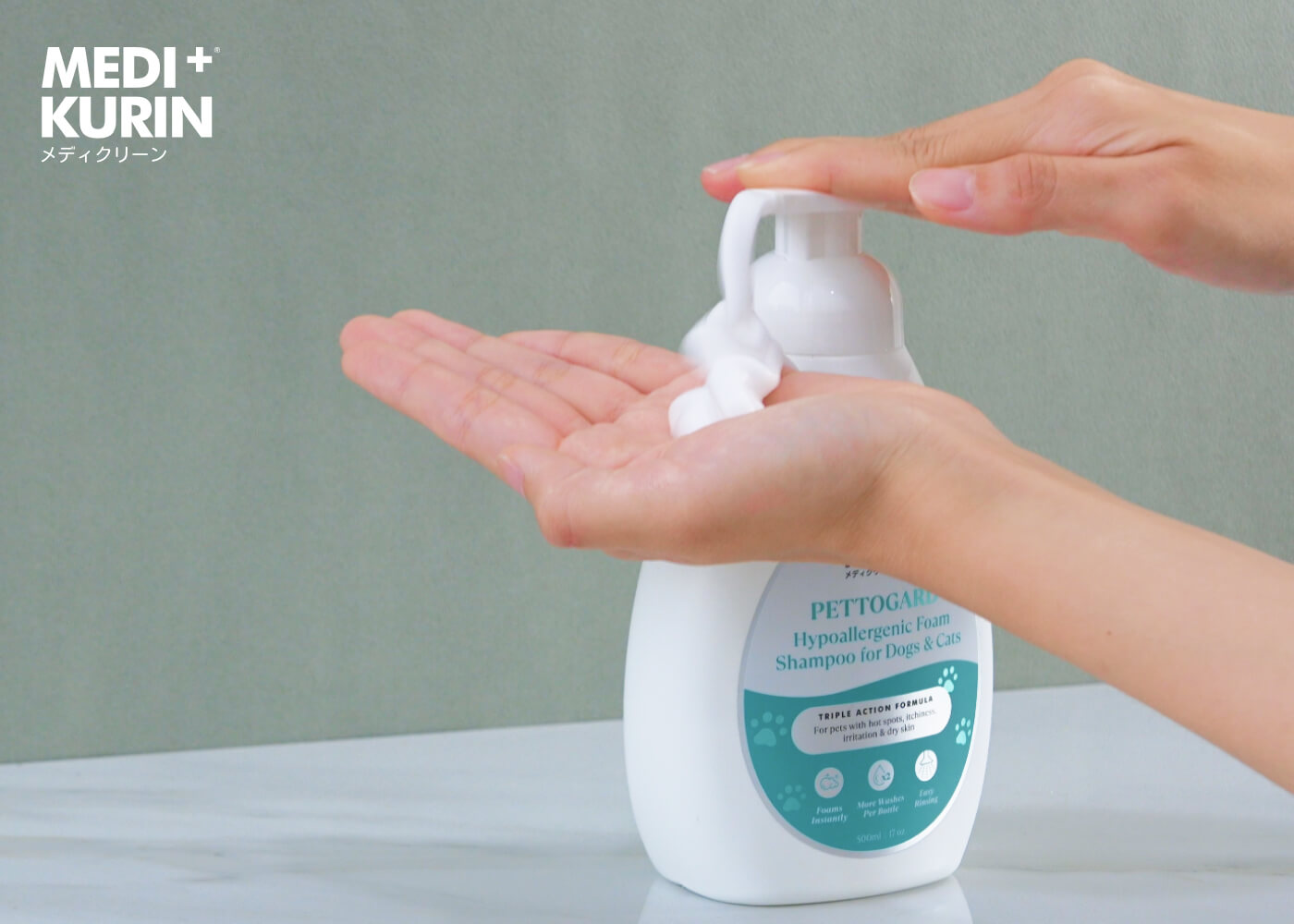
For optimal coverage and easy application, the shampoo foams immediately after being pumped out from the bottle so that you can conveniently lather the shampoo onto your pet’s coat without further need to scrub and rub. With easy application, your cat would not be stressed out as no hard scrub is needed.
P.S. Never use human shampoos as it is unsuitable for cats’ skin and is known for stripping away natural oils and upsetting their skin’s pH balance – resulting in even more irritated skin.
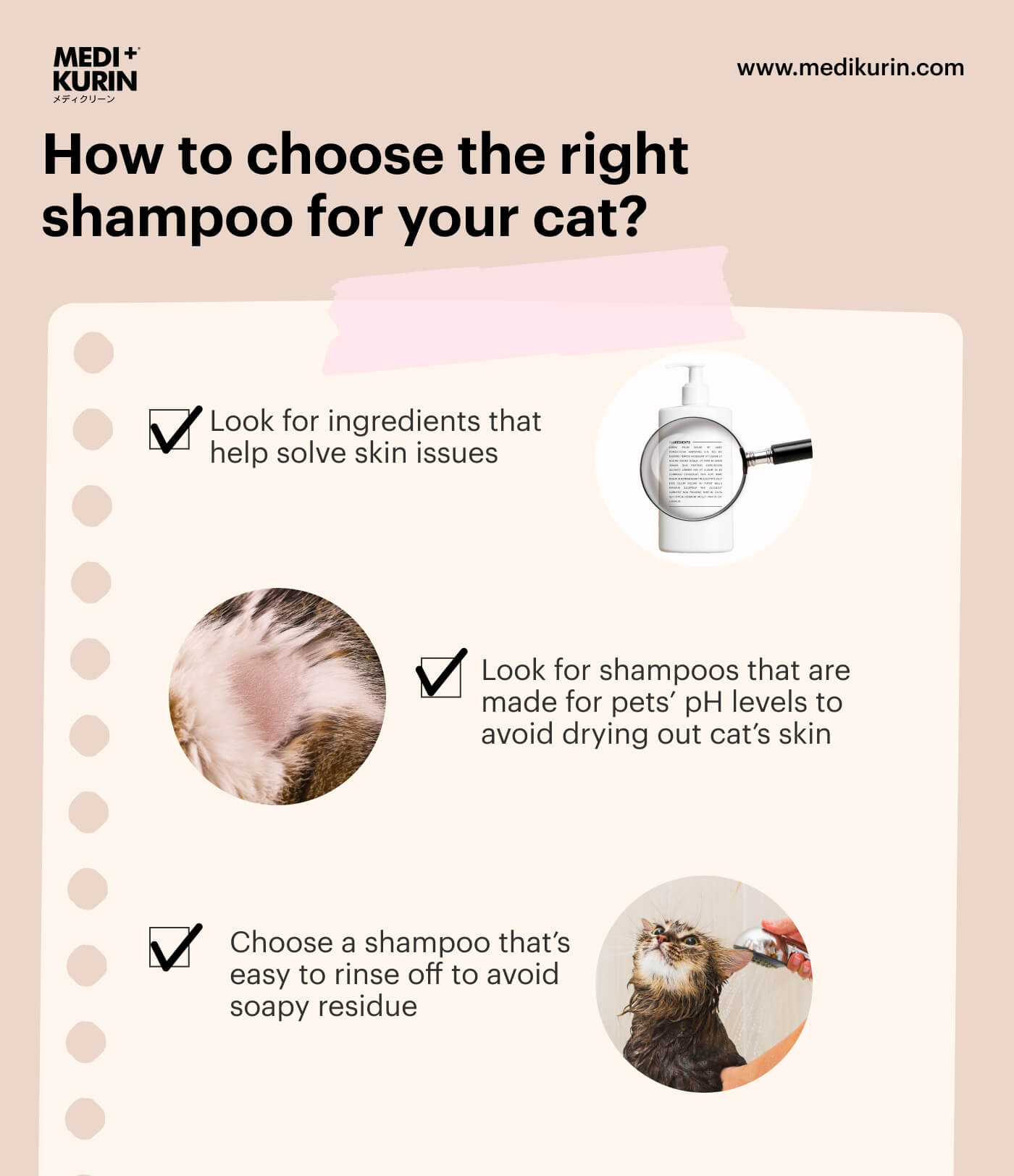
Show your pet care in every wash with our gentle yet powerful Triple Action formula that moisturizes, soothes, and repairs your pet’s skin and coat.
Conclusion
Prevention is better than cure, and giving your cat a bath is an excellent way to help prevent or soothe any irritation while cleaning your beloved pet thoroughly. Remember to be prepared for bath time, choose the right kind of shampoo, and also use the right treatments to address their allergies. If your cat could speak, it would be sure to thank you!
All in all, choosing the right shampoo formula is the most crucial element in the maintenance of your pet cat’s healthy coat.
Looking to create a healthy and happy pet? Browse through our products page to learn more about what we have to offer.

